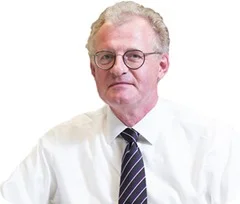Scientific Advisory Board

Prof Barry Marshall AC FRACP FRS FAA
Barry Marshall is a physician, Nobel Prize Laureate in Physiology or Medicine, and Professor of Clinical Microbiology at the University of Western Australia. He specializes in gastric infections and has established biomedical companies developing products that exploit Helicobacter pylori biology.

Prof Graeme J Hankey MBBS, MD, FRCP (Lond), FRCP (Edin), FRACP, FAHA
Graeme Hankey is Professor of Neurology, at The University of Western Australia. His 638 peer-reviewed publications that have >37,000 citations. He has authored 10 books (the most recent Hankey’s Clinical Neurology, 2nd edition, 2014). He is a member of the Board of the World Stroke Organisation, Scientific Council of the American Stroke Association, and was awarded and the 2015 American Stroke Association’s Council on Stroke and International Stroke Conference Program Committee’s David G. Sherman Lecture Award for outstanding lifetime contributions to the field of stroke.

Prof Stephen S. Rich PhD
Stephen Rich is Professor of Public Health Science, University of Virginia. He is a leader in the field of human genetics and has made groundbreaking and impactful contributions to the understanding of the genetics of Type I diabetes and many other complex diseases. He has published more than 700 scientific papers, including many in the journals Nature, Scienceand Cell.

Prof Girish Dwivedi MD, DM, MRCP (UK), PhD (UK), CCST (Cardiology), FESC, FASE, FRACP
Girish Dwivedi is the inaugural Wesfarmers Chair in Cardiology at the University of Western Australia and Consultant Cardiologist at Fiona Stanley Hospital, Murdoch, WA. Prior to this he was appointed as a Clinician Scientist (Canadian Institute of Health Research New Investigator) and Consultant Cardiologist at the University of Ottawa Heart Institute (UOHI), Canada. His background is unique as he is one of a few cardiologists in Australia who have advanced (level 3) multimodality imaging training. He has received accreditations in Cardiac Computed Tomography, Echocardiography, Cardiac Magnetic Resonance and Nuclear Cardiology including Positron Emission Tomography.

Prof Bernhard O. Boehm MD
Bernhard Boehm has many important contributions to the immunology of diabetes. He described for the first time the genetic basis of adult-onset autoimmune diabetes in population-based cohorts. He performed the first trans-ethnic comparison of LADA (latent autoimmune diabetes of adults) subjects from Europe and Southeast Asia and accomplished the initial genome wide association study of this disease. He also identified the crucial role of the immune checkpoint PD-1/PD-L1 pathway as well as ß-cell specific co-stimulatory CD80 expression in disrupting tissue-specific protection of pancreatic islet-cells.
He is currently investigating gene expression in islet cells in subjects with Type 1 and Type 2 diabetes as well as the impact of low-grade inflammation in relation to development of diabetic complications.
